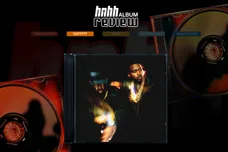Kendrick Lamar’s latest installment into his discography To Pimp a Butterfly has only been a part of the Hip Hop world less than a week and yet critics, fans, and fellow musicians alike aren’t shying away from heralding it as a modern day classic.
By looking at the credits of the record, you’d be able to track some of Lamar’s musical influences. Multiple appearances by Thundercat and even a cameo by George Clinton will allude to some of the albums’ funky roots. With coinciding release dates, name drops, and even on-album conversations all referencing Tupac Shakur, it’s impossible to keep him out of the conversation.
But let’s get investigative about this, shall we? It’s only fitting that with an album so ripe with recognition of Pac, whose lyrics are constantly probed for meaning and influence, that we turn on our detective vision and traverse the innards of To Pimp a Butterfly in effort to unlock some of the less obvious influences on the record.
Check out these 3 less obvious influences found on Lamar’s newest effort.
Item #1

Item #1

His Own Influence on the Industry
In the past it has seemed Kendrick Lamar had been the skeptic flag bearer for Hip Hop’s next generation. Tracks like “Control” seemed to say “if no one else is going to do this, I will.” Now, with To Pimp a Butterfly, it appears as if K-dot has come to terms with his (for lack of a better word) responsibility to Hip Hop. This acceptance creates an undercurrent that leaks throughout the entirety of the album, driven by Lamar’s own anxieties about his new (and vital) role in music. On this album, littered with tracks of self reflection, Kendrick calls himself a failure, nothing special, fucked up, insensitive, lacking empathy, and says he should have killed himself long ago. On “Mortal Man” he challenges his fan base on their loyalty to him and his undefined future (When the shit hit the fan is you still a fan?). On “King Kunta” he double checks on those that shower him with acclaim (Now if I give you the funk, you gon’ take it?).
Thankfully, by the end of album, Lamar’s anxieties seem mostly subsided - the closing moments of the album between he and Tupac playing like an extended scene between Spiderman and his late Uncle Ben. Kendrick is our hero, and through the trials, tribulations, and even deaths of other people who have tried to bear crosses - or experienced the “yams” before (Bill Clinton, Kuta-Kinte, Richard Pryor are among those name dropped) instill in him the famous lesson: With great power comes great responsibility.
Ferguson

Ferguson
Ferguson, and its illuminating fallout, will be an influence on hip hop for generations to come, sure. However, Lamar has been outspoken about his feelings in regards to Ferguson from the jump, insisting “...when we don’t have respect for ourselves, how do we expect them to respect us?” to Billboard. To Pimp a Butterfly cast member Sounwave referenced Ferguson’s impact on Lamar’s album telling the New York Times about “a whole lot of anger, a whole lot of frustration” that “rubbed off” on the rapper. The aforementioned fury appears all over To Pimp a Butterfly. “Hood Politics” paints the government as gang warfare and takes notice to crooked cops. Perhaps the biggest takeaway from Lamar’s anger is his control over the hate that it can help brew. “Alright” can be looked at as a message to the black community akin to his points made in the Billboard quote above, saying “When you know we been hurt, been down before, ni**a, when my pride was low, lookin' at the world like, "where do we go, ni**a?" I'm at the preacher's door, my knees gettin' weak and my gun might blow,” before concluding “But we gon' be alright.” Tracks like “Complexion” explores the Compton born emcee’s insecurities about his own hue, only to determine that “it don’t mean a thang.”
Item #3

Fela Kuti
A 2014 trip to South Africa served as a poignant predecessor To Pimp a Butterfly. Obvious trickle-down from this trip are in the countless Nelson Mandela references. However the influence of Fela Kuti, who pioneered both politics and music on the continent, is maybe less apparent to the naked eye. Famously saying “Music is the Weapon,” Kuti amassed such a cult following for his music - equally revolutionary in sound and in socially conscious lyrical content - that he was able to run for Nigerian presidency. On To Pimp a Butterfly K-dot’s references to the mutual unflinching loyalty between he and his native West Coast brings about memories of Fela’s symbiotic relationship with Africa. Lamar even toys around running for mayor at one point on “King Kunta.” The father of Afrobeat is actually sampled in “Mortal Man,” which uses “I No Get Eye for Back,” a track that is equal parts funky and condemning - a feel that Kendrick employs plenty on To Pimp.







